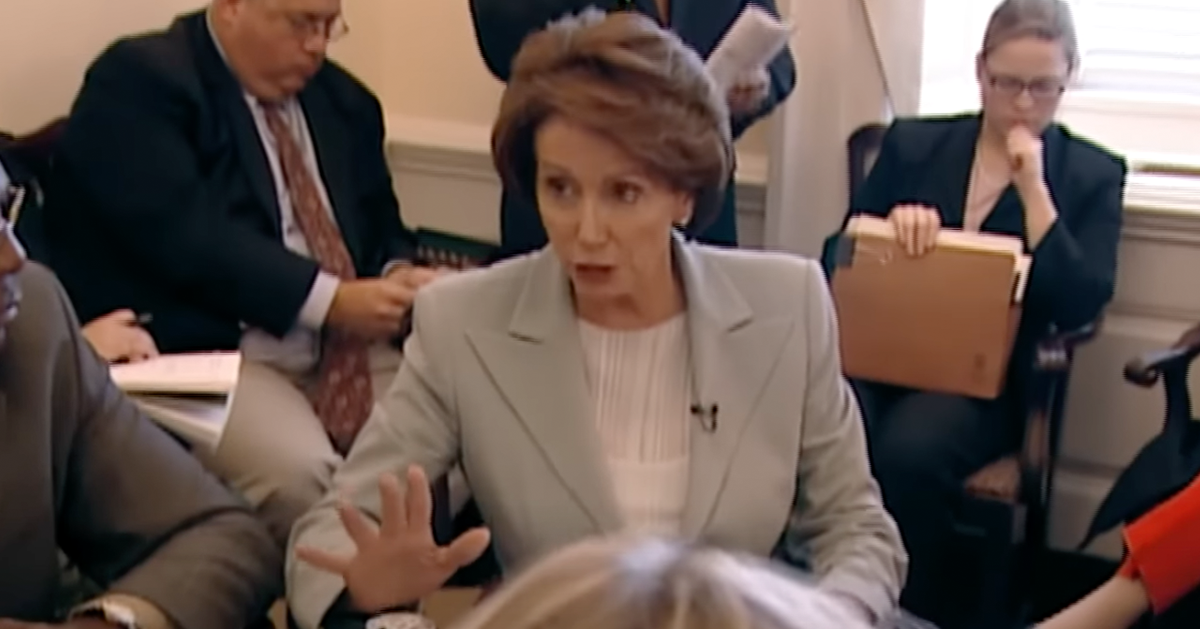Biden Considers Removing Terrorist Group HTS from Blacklist
President Joe Biden is reportedly exploring the removal of Hay’at Tahrir al-Sham (HTS), a group linked to Al-Qaeda, from America's list of Foreign Terrorist Organizations (FTO).
Biden's potential decision has raised concerns among experts, who warn of possible repercussions for regional stability and counterterrorism efforts, as the Daily Wire reports.
Biden Weighs HTS Delisting Amid Controversy
The possibility of delisting HTS stems from its role in opposing Syrian President Bashar al-Assad's regime. This development, however, is contentious due to the group’s origins and ongoing connections with Al-Qaeda.
HTS emerged as a militant organization tied to Al-Qaeda, and its leader, Abu Muhammad Jawlani, has a $10 million bounty placed on his head by the United States. Removing the group from the FTO list would also eliminate this bounty, a move critics argue could embolden the organization.
Officials have indicated that delisting HTS might facilitate support from foreign governments to the group, potentially altering the balance of power in the region. Yet, the decision is fraught with risks, given the organization's troubled history.
Experts Voice Alarm Over the Proposal
Retired Gen. Frank McKenzie, who previously served as the commander of U.S. Central Command (CENTCOM), has been vocal in his opposition. He expressed skepticism about the idea that HTS or its leadership could reform.
“He has a significant track record,” McKenzie said of Jawlani, pointing to his history of terrorist activities. The general also noted that terrorists rarely undergo meaningful change, stating, “Typically they don’t.”
McKenzie further warned that the implications of such a move could extend beyond Syria, potentially creating conditions for another extremist group to arise. He emphasized that the ramifications could unfold over the next few days, saying, “In the next 48, 72, 96 hours, this will begin to become clearer to us.”
Concerns About Regional Stability and Security
One of the primary fears is that the collapse of the Syrian government, hastened by HTS’s empowerment, could lead to widespread instability. Experts have pointed to past instances where similar decisions led to unintended consequences.
For example, the Biden administration’s removal of the Houthis in Yemen from the FTO list resulted in a resurgence of their activities. After their delisting, the Houthis carried out attacks on merchant and naval vessels in the Arabian Peninsula, demonstrating the potential risks of such actions.
McKenzie warned that Syria’s collapse could have profound effects on its people and the broader region. “We could have an Islamic State arise there,” he cautioned, noting the dangers of unchecked extremist activity.
Implications for Counterterrorism Efforts
The delisting of HTS would signal a significant shift in U.S. counterterrorism policy. While proponents argue that it could help stabilize the region by supporting HTS as a counterforce to Assad, critics argue that it undermines long-standing efforts to combat terrorism.
HTS’s history and affiliation with Al-Qaeda raise questions about its reliability as a partner in the fight against extremism. Experts have underscored that such groups often continue their violent agendas despite political or strategic concessions.
Removing the $10 million bounty on Jawlani also adds a layer of controversy to the decision. The bounty was intended to incentivize information leading to his capture, and its removal could diminish international efforts to hold him accountable.
Historical Lessons and Future Risks
Looking at historical parallels, the decision to delist HTS evokes concerns similar to those following the Houthis’ removal from the FTO list. The resurgence of terrorist activities in Yemen serves as a cautionary tale for policymakers considering similar moves in Syria.
McKenzie emphasized the unpredictable nature of such decisions. “I’m not sure it’s ultimately going to be good news for the people of Syria,” he said, highlighting the uncertainty surrounding the region’s future.
In addition to the threat of another Islamic State, experts warn that the weakening of Assad’s regime could lead to power vacuums and factional conflicts. These scenarios could further destabilize the region, exacerbating humanitarian crises.
The Road Ahead for U.S. Policy
As the Biden administration continues to weigh its options, the potential delisting of HTS remains a divisive issue. Policymakers must consider the immediate and long-term consequences of such a move, balancing the desire for strategic gains against the risk of unintended fallout.
The next few days could prove pivotal in shaping the future of U.S. involvement in Syria and the broader Middle East. With concerns about regional stability, counterterrorism, and humanitarian impact at the forefront, the administration’s decision will likely face intense scrutiny.
For now, experts and observers alike are closely monitoring developments, as the implications of this decision unfold.





